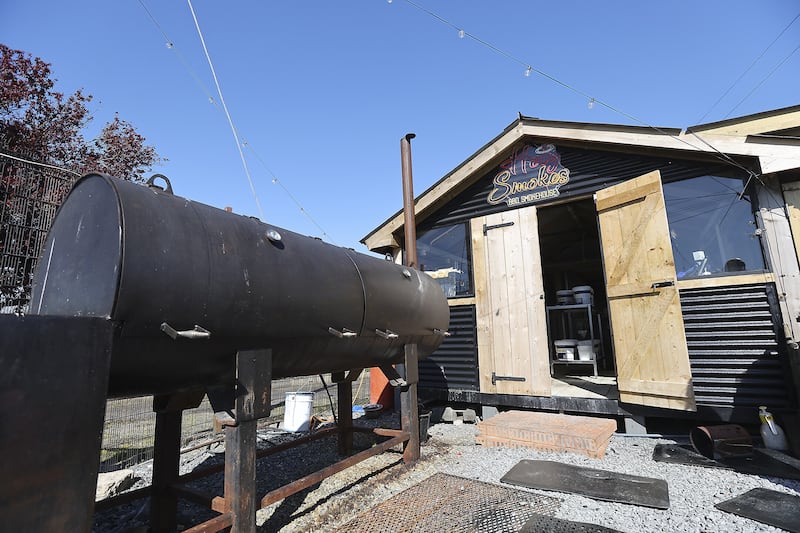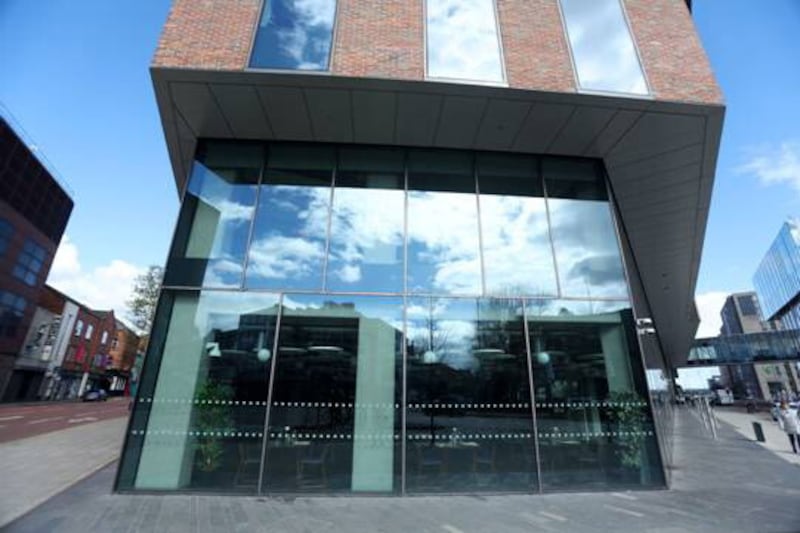Given they came into the tournament on the back of a Six Nations Grand Slam, Ireland’s presence in Friday’s World Rugby U20 Championship shouldn’t come as a massive surprise.
That said, the unforgiving nature of the competition’s format and the deja vu of their group draw meant early elimination could hardly be ruled out for Richie Murphy’s side.
As in 2019, when they had also won the Grand Slam, the Irish found themselves in a group with England and Australia with only one of the trio guaranteed to progress as table toppers and the runners-up hoping to go through with a better record than the second-place sides from one of the other, weaker, pools.
They missed out in 2019 but topped the group this year. After that they powered their way past hosts South Africa to reach Friday’s final against France.
But difficult draws or previous failures don’t tell the full story of what Ireland have achieved in getting this far.
Before their final group match against Fiji a minute’s silence was held and Fijian skipper Moti Murray presented his Irish counterpart Diarmuid Mangan with a jersey as a mark of respect for what the squad had gone through in the previous few days.
Six of the panel went to St Michael’s College in Dublin, a school plunged into mourning when two of its students, and friends to many of those players, Max Wall and Andrew O’Donnell, died in separate incidents on the Greek island of Ios.
Then scrum-half Jack Oliver’s father Greig, a coach with Munster, died in a paragliding accident while in South Africa supporting his son and the Ireland team.
Ireland managed to beat Fiji to secure semi-final qualification, then South Africa to reach the decider. Between the games Murphy praised the way his young charges had dealt with everything, especially the loss suffered by their team-mate.
After the semi-final he said: “Greig’s passing was particularly difficult and Jack was in the group with us up until Wednesday evening when he left, so it was a difficult time for the boys.
“But Jack sent his support as did Fiona, Greig’s wife, and they are at home, and we are really delighted to be able to bring him back something because no matter what happens now we will be going back with something for Jack.”
Read More:
Ireland overcome Fiji in emotional U20 World Championship game
Pello Bilbao dedicates Tour de France stage victory to late friend and team-mate Gino Mader
Dealing with grief is the most difficult thing most people will ever have to do. Dealing with it publicly is at least spared most of us. Yes, you may have to go back to work eventually and face people – something that can help or be the last thing you want to do – but there’s no TV camera waiting for you and no-one’s writing things in the paper or in the internet about how you appear to be coping.
The Irish players are also of an age young enough that many will have likely never experienced the death of someone close to them, while also feeling the invincibility that comes with youth and being star sportsmen for their country.
That’s not to say age or wisdom makes it any easier. Everyone responds to and processes grief differently. Time can heal for some but for others it can just make it feel different, or worse.
While Murphy and his coaching team can do their best to protect and help their young players, they are still going out and playing. They may be fledgling careers, which might not work out for all of them, but these young men are still going out and doing their job. For some it will be an escape. For others it will be a struggle and throw up issues unique to the sporting arena that come with personal loss.
Murphy spoke of reaching the final to bring back something for Jack Oliver and the idea of playing for a team-mate who has suffered a bereavement, or even a team-mate you have lost, is another that has as many different shades as there are people to experience it.
Many of the Tyrone team who helped the county win its first All-Ireland title in 2003 had played with Paul McGirr, who died after a collision in an Ulster minor Championship match six years earlier.
In 2004 Tyrone had to defend their All-Ireland title without their team-mate Cormac McAnallen, who died in March that year. Soon after Tyrone won back the Sam Maguire in 2005, Enda McGinley spoke of McAnallen’s presence as the team tried to come to terms with his loss.
“It was something that was always there, but it was something you didn’t feel right mentioning,” he said.
“If you used it just to psyche yourself up for a match you would be cheating his name. For the first time in 2005 his name was mentioned in the build-up to the final but it still wasn’t ‘do it for Cormac’. Cormac is more than a motivational tool and always will be.
“Also, there was the risk of losing. Then you would feel you haven’t done enough. If you make the match for him, it’s far too big a risk that you won’t come out of it the right way.”
Yesterday Bahrain-Victorious rider Pello Bilbao won the 10th stage of the Tour de France, just a month after his team-mate Gino Mäder was killed in a crash at the Tour de Suisse. The team pulled out of that race but were back on the road soon after, doing the dangerous job that had cost their friend his life, with several riders winning races, all crossing the line pointing to the sky, their faces traced not with joy but with sadness, pain and
loss.
There won’t be any more emotional moment in this year’s Tour than Bilbao’s victory yesterday. And that emotion was laid bare for all to see.
That’s just one reason the admiration for the cyclists of Bahrain Victorious or the young rugby players of Ireland extends way beyond the results of what they do in the roads of France or the pitches of South Africa.







